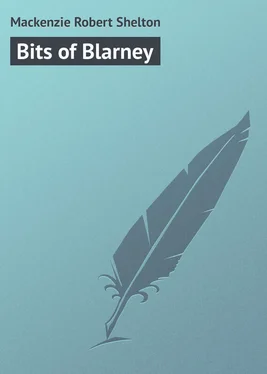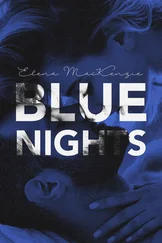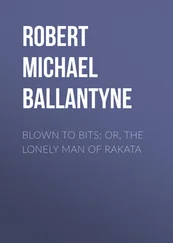Robert Mackenzie - Bits of Blarney
Здесь есть возможность читать онлайн «Robert Mackenzie - Bits of Blarney» — ознакомительный отрывок электронной книги совершенно бесплатно, а после прочтения отрывка купить полную версию. В некоторых случаях можно слушать аудио, скачать через торрент в формате fb2 и присутствует краткое содержание. ISBN: , Жанр: foreign_prose, foreign_humor, на английском языке. Описание произведения, (предисловие) а так же отзывы посетителей доступны на портале библиотеки ЛибКат.
- Название:Bits of Blarney
- Автор:
- Жанр:
- Год:неизвестен
- ISBN:http://www.gutenberg.org/ebooks/43563
- Рейтинг книги:5 / 5. Голосов: 1
-
Избранное:Добавить в избранное
- Отзывы:
-
Ваша оценка:
- 100
- 1
- 2
- 3
- 4
- 5
Bits of Blarney: краткое содержание, описание и аннотация
Предлагаем к чтению аннотацию, описание, краткое содержание или предисловие (зависит от того, что написал сам автор книги «Bits of Blarney»). Если вы не нашли необходимую информацию о книге — напишите в комментариях, мы постараемся отыскать её.
Bits of Blarney — читать онлайн ознакомительный отрывок
Ниже представлен текст книги, разбитый по страницам. Система сохранения места последней прочитанной страницы, позволяет с удобством читать онлайн бесплатно книгу «Bits of Blarney», без необходимости каждый раз заново искать на чём Вы остановились. Поставьте закладку, и сможете в любой момент перейти на страницу, на которой закончили чтение.
Интервал:
Закладка:
R. Shelton Mackenzie
Bits of Blarney
My Dear Sir: – The deified heroes of the Norse mythology are believed to spend their afternoons in drinking something stronger than lemonade out of their enemies' skulls, and some ill-natured persons, seizing on the idea, have declared that publishers use the skulls of their authors as drinking-cups, in the same manner. For my own part, I discredit the assertion – as far as my relations with yourself enable me to judge; I suspect that the time has gone by when Napoleon's health was drank as "a friend of literature," because he had shot a bookseller; and I give you unlimited permission to use my skull, in the Norse fashion, provided that you wait until "in death I shall calm recline," when I shall have no further occasion for it. In such case, the least you can do will be to drink my memory, "in solemn silence" – the beverage being whiskey-punch, as a delicate compliment to my country.
Seriously speaking (or writing), however, I take leave to dedicate this volume to you, with the solemn assurance that my doing so must not be taken as – a Bit of Blarney.
The book is Irish – to all intents and purposes, and is put forth with the least possible pretence. It contains Legends – familiar to me in my youth; Stories, which, more or less, are literally "founded upon facts;" recollections of Eccentric Characters, whose peculiarities it would have been difficult to exaggerate; – and Sketches of the two great Irish leaders of the last and present century, Grattan, who won National Independence for Ireland, and O'Connell, who obtained Emancipation for the great majority of his countrymen. The Sketch of the great Agitator has extended almost to a biography – but I knew the man well, and write of him on that knowledge. In this volume he is certainly entitled to a niche, having been the greatest professor of "Blarney" these later days have seen or heard.
New York, August 20, 1855 .
LEGENDS
BITS OF BLARNEY
How many have heard of "Blarney," and how few know how and why this appropriate term has originated! How could they, indeed, unless they had made a pilgrimage to the Castle, as I did, in order to manœuvre Tim Cronin into a narration of its legends? – They may go to Blarney, whenever they please, but the genius loci has vanished. Tim Cronin has been gathered to his fathers. By no lingering or vulgar disease did he perish; he died – of a sudden.
Scarcely any part of Ireland has attained more celebrity than the far-famed village of Blarney, in the county, and near the city of Cork. At Blarney may be seen the mysterious talisman, which has the extraordinary power of conferring remarkable gifts of persuasion on the lips which, with due reverence and proper faith in its virtues, invoke the hidden genii of The Stone, to yield them its inspiration. The ceremony is brief: – only a kiss on the flinty rock, and the kisser is instantly endowed with the happy faculty of flattering the fair sex ad libitum , without their once suspecting that it can be flattery. On the masculine gender it is not less effective. Altogether, it enables the kisser, like History,
"To lie like truth, and still most truly lie."
Immortal poesie has already celebrated the locality of Blarney. The far-famed chanson , written by Richard Alfred Milliken, 1 1 In Lockhart's Life of Scott, this renowned Song is attributed to "the poetical Dean of Cork" (Dr. Burrowes, who wrote "The Night before Larry was stretched"), but really was written by Milliken, a poetical lawyer of whom Maguire says (O'Doherty Papers, vol. ii., p. 181) that not even Christopher North himself —
and called "The Groves of Blarney," has been heard or read by every one: – in these later days the polyglot edition, by him who has assumed the name of Father Prout, is well known to the public. There is an interpolated verse, which may be adopted (as it sometimes is) into the original chanson , on account of the earnestness with which it declares that
"The stone this is, whoever kisses,
He never misses to grow eloquent:
'Tis he may clamber to a lady's chamber,
Or become a member of Parliament."
Blarney Castle is surrounded by the Groves mentioned in the song. It stands four miles to the northwest of "the beautiful city called Cork," and, of course, in the fox-hunting district of Muskerry. All that can now be seen are the remains of an antique castellated pile, to the east of which was rather incongruously attached, a century ago, a large mansion of modern architecture.
The Castle stands on the north side of a precipitous ridge of limestone rock, rising from a deep valley, and its base is washed by a small and beautifully clear river called the Aw-martin. A large, square, and massive tower – a sort of Keep, – is all that remains of the original fortress. The top of this building is surrounded with a parapet, breast-high, and on the very summit is the famous Stone which is said to possess the power, already mentioned, of conferring on every gentleman who kisses it the peculiar property of telling any thing, in the way of praise (commonly called flattery), with unblushing cheek and "forehead unabashed." As the fair sex have to receive, rather than bestow compliments, the oscular homage to the Stone conveys no power to them . From the virtues which it communicates to the masculine pilgrims, we have the well-known term blarney and blarney-stone .
The real Stone is in such a dangerous position, from its elevation, that it is rarely kissed, except by very adventurous pilgrims of the Tom Sheridan class, who will do the thing, and not be content with saying they have done it! The stone which officiates as its deputy, is one which was loosened by a shot from the cannon of Oliver Cromwell's troops, who were encamped on the hill behind the Castle. This stone is secured in its place by iron stanchions, and it is this that the visitors kiss, as aforesaid, and by mistake. The Song, it may be remembered, speaks of the Cromwellian bombardment of the Castle:
"'Tis Lady Jeffreys that owns this station,
Like Alexander, or like Helen, fair.
There's no commander throughout the nation
In emulation can with her compare:
Such walls surround her, that no nine-pounder
Could ever plunder her place of strength,
Till Oliver Cromwell he did her pummel,
And made a breach in her battlement."
Between Blarney Castle and the hill whereon Cromwell's troops bivouacked , is a sweet vale called the Rock Close. This is a charming spot, whereon (or legends lie) the little elves of fairy-land once loved to assemble in midnight revelry. At one end of this vale is a lake of unfathomable depth, and Superstition delights to relate stories of its wonders.
When Sir Walter Scott was in Ireland, he visited Blarney, accompanied by Anne Scott, Miss Edgeworth, and Mr. Lockhart. A few days after he was there, it was my fortune to tread in his steps to the same classic shrine.
The barefooted and talkative guide who would accompany me over the Castle, thus described "the Ariosto of the North," and his companions: – "A tall, bulky man, who halted a great deal, came here, with his daughter and a very small lady, and a dash of a gentleman, with a bright keen eye that looked here, and there, and everywhere in a minute. They thrust themselves, ransacking, into every nook and cranny that a rat would not go through, scarcely. When the lame gentleman came to the top of the Castle, wasn't he delighted, and didn't he take all the country down upon paper with a pencil, while one of us sang 'The Groves of Blarney.' He made us sing it again, and gave me a crown-piece, and said that he'd converse a poem on the Castle, himself, may-be!"
Читать дальшеИнтервал:
Закладка:
Похожие книги на «Bits of Blarney»
Представляем Вашему вниманию похожие книги на «Bits of Blarney» списком для выбора. Мы отобрали схожую по названию и смыслу литературу в надежде предоставить читателям больше вариантов отыскать новые, интересные, ещё непрочитанные произведения.
Обсуждение, отзывы о книге «Bits of Blarney» и просто собственные мнения читателей. Оставьте ваши комментарии, напишите, что Вы думаете о произведении, его смысле или главных героях. Укажите что конкретно понравилось, а что нет, и почему Вы так считаете.












